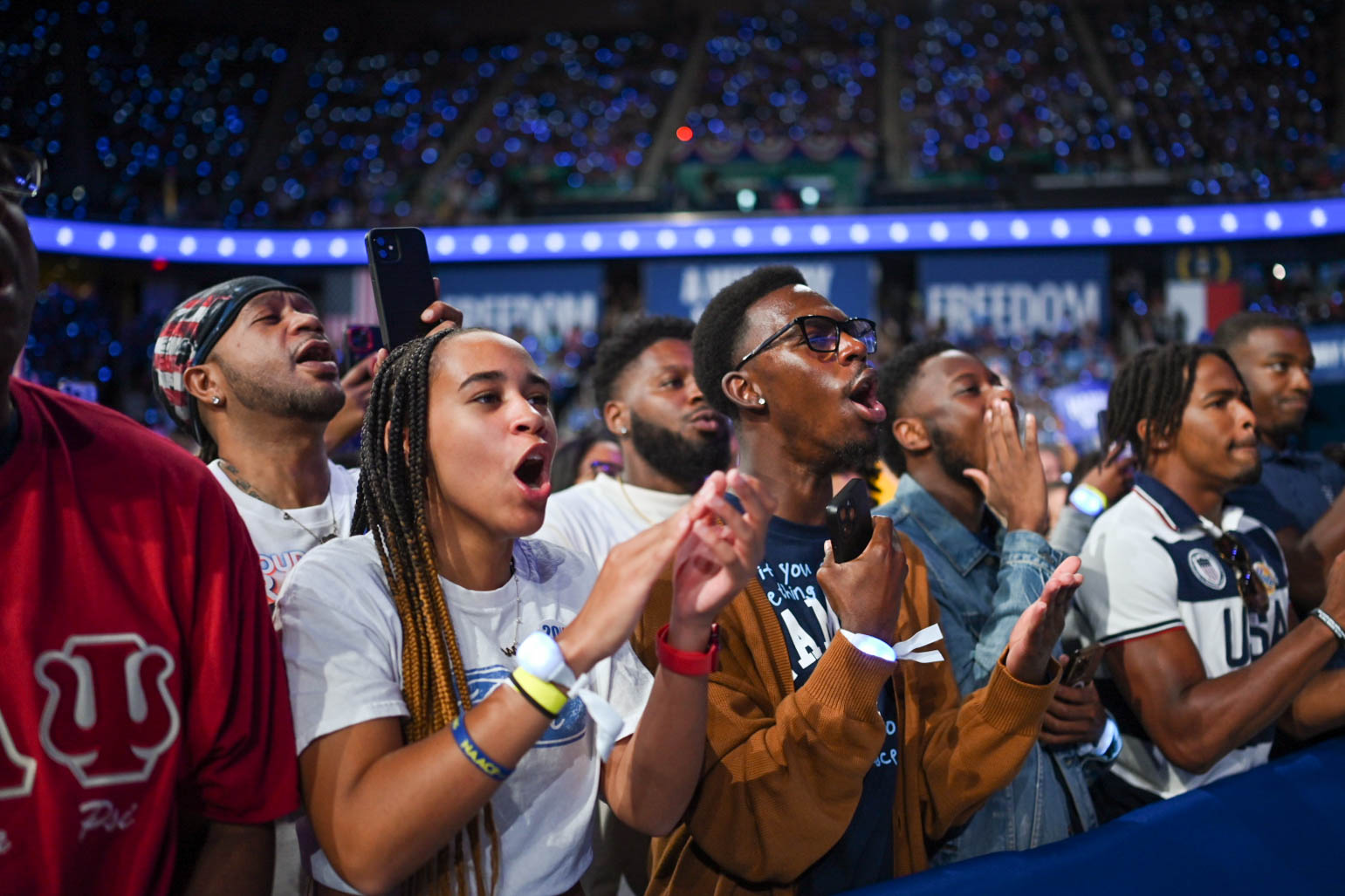Dan Guild is a lawyer and project manager who lives in New Hampshire. In addition to writing for Bleeding Heartland, he has written for CNN and Sabato’s Crystal Ball, most recently here. He also contributed to the Washington Post’s 2020 primary simulations. Follow him on Twitter @dcg1114.
In November of last year, I asked, “Are Republicans really gaining among Black voters?” Since then, political reporters have written article after article on the subject. A New York Times story about a recent poll declared, “Black voters drift from Democrats, Imperiling Harris’s Bid.” This week, Newsweek wrote about a different poll using the headline, “Donald Trump sees surge in support among Black Virginia Voters.”
Before I get the data, I want to make a serious point. These stories insulate Trump from the plain meaning of his language. See, he tells his supporters, I am not a racist: Black people are voting for me. So, while this question may seem like something only data nerds should care about, media coverage of the African-American vote has very real consequences for the political conversation in this country.
Within that context, the reporting on this topic has been shameful. It has gone far beyond the data and consistently ignored the lessons of 2022.
This table contains a lot of data, but the key parts are grey. In 2020, the average of national polls of Black voters showed Joe Biden leading Trump by 67 points (79 percent to 12 percent). According to exit polls, Biden’s final margin among African Americans was substantially larger: 90 percent to 9.5 percent for Trump. Note the comparison of his late polling to two averages.

Harris has consolidated the African-American vote in a way President Biden did not before he stepped down as the Democratic candidate. Harris’s net is nearly 20 points higher than Biden’s, and one can ask whether Biden would have been as successful as Harris has been as a candidate. At any event, Harris is, at this point, slightly ahead of where Biden was in late polling (the data for 2020 was in my previous article).
The enormous disparity among African Americans in 2022 is what leaps out from this table. Since I published this article, I have looked at the 2022 elections for U.S. Senate and found significant disparities in key races.
The simple truth is that pollsters are getting worse at polling African Americans. Given the stability across multiple elections and the sample size of most polls (state polls often have larger sample sizes than national polls), one should be very skeptical about any supposed shift among African Americans.
If the data about Harris’s margin among African Americans suggests little cause for concern, what about turnout? As I noted last November, Black turnout was central to Biden’s victories in many key states. Importantly, polling in two states suggests pollsters apply different assumptions about African-American turnout.
You can see this in the table below. Surveys from North Carolina and Georgia have large subsamples because of the large Black population in those states. When we look at polling we see vastly different numbers for the share of the African-American vote in these battleground states. Most pollsters are assuming lower Black turnout in 2024 than in 2020. I am skeptical they are right about this—but make no mistake, these states will be decided in no small measure based on African American turnout.

Here is the state-level data on Black voter preferences in 2024.

Here is this year’s national-level data:

Many people think we know the margins of key groups with a precision that does not exist. The next table summarizes the exit polls from the last few elections. Note, particularly with the Hispanic vote in 2020, that there is a wide range in some of these results. That tells us that any measure of Black or Brown voting in the United States is subject to significant error.

The African-American vote will be vital in 2024. At this moment it appears Harris’s margin will be more than sufficient to win. The real question is turnout.
Top image: Supporters cheer as Vice President Kamala Harris delivers remarks during a campaign rally at the Greensboro Coliseum in Greensboro, North Carolina, September 12, 2024. (Christopher Dilts/Harris for President) First published on the Harris campaign’s Facebook page.


1 Comment
Every time I see people categorized by their color, I think of what MLK wrote
“The other force is one of bitterness and hatred, and it comes perilously close to advocating violence. It is expressed in the various black nationalist groups that are springing up across the nation, (…). Nourished by the Negro’s frustration over the continued existence of racial discrimination, this movement is made up of people who have lost faith in America, who have absolutely repudiated Christianity, and who have concluded that the white man is an incorrigible “devil.”
I have tried to stand between these two forces, saying that we need emulate neither the “do nothingism” of the complacent nor the hatred and despair of the black nationalist. For there is the more excellent way of love and nonviolent protest.”
Letter from Birmingham Jail, by Martin Luther King, Jr., 1963
Karl M Fri 1 Nov 12:25 AM